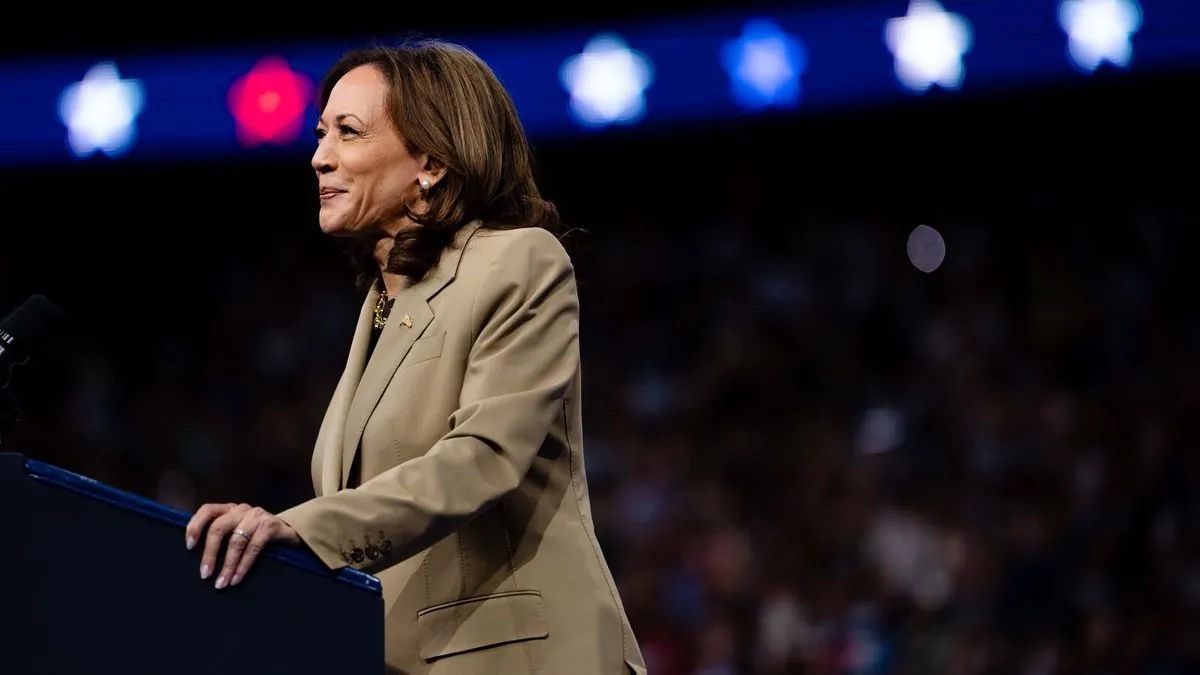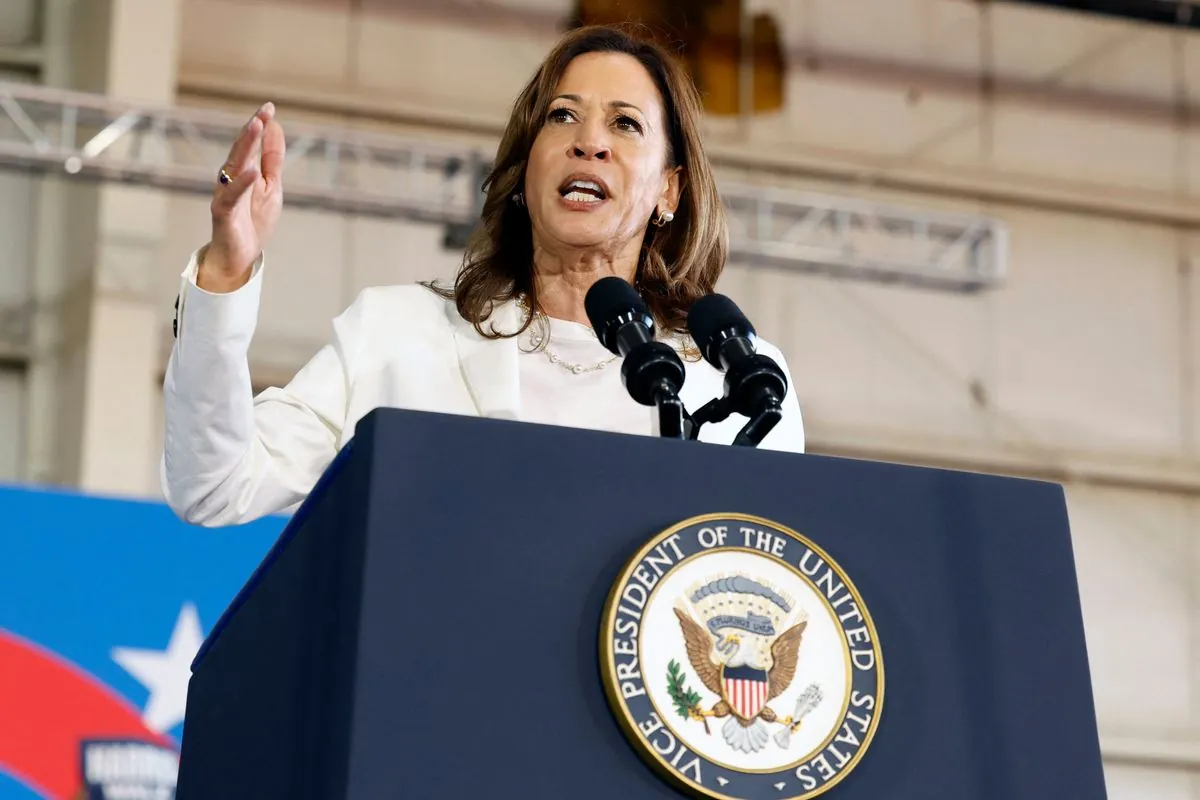Harris Unveils Economic Plan: Tax Cuts and Price Controls Take Center Stage
Vice President Kamala Harris presents a comprehensive economic agenda, focusing on tax relief for families and measures to combat inflation. Her plan aims to distinguish her campaign from Republican rival Donald Trump.

Kamala Harris, the Democratic presidential candidate and current U.S. Vice President, is set to unveil her economic agenda in Raleigh, North Carolina. Her proposals focus on tax reductions, measures to control prices, and initiatives to increase affordable housing.
Harris' plan includes expanding the child tax credit to $6,000 for families with newborns, reducing taxes for families with children, and lowering prescription drug costs. These proposals aim to address the economic concerns of working Americans and differentiate her campaign from that of her Republican opponent, Donald Trump.

The Vice President's economic strategy largely aligns with President Joe Biden's policies but introduces some expansions. One notable proposal is a federal ban on price gouging for food and groceries, aimed at preventing corporations from exploiting consumers while generating excessive profits. Harris plans to direct the Federal Trade Commission to impose strict penalties on firms violating these new limits.
"The first-ever federal ban on price gouging on food and groceries will stop big corporations from unfairly exploiting consumers while generating excessive corporate profits."
In the housing sector, Harris proposes the construction of 3 million new units, along with tax incentives to encourage building homes for first-time buyers. She also plans to offer a $25,000 credit for such buyers and expand rental assistance.
Harris' healthcare proposals include efforts to lower costs, cancel medical debt, and highlight the administration's success in negotiating lower prices for top-selling prescription drugs used by Medicare recipients.
The Vice President's economic agenda faces potential challenges from both corporations and Congress, which have previously resisted similar proposals. The implementation of these policies would require majority support in Congress, a hurdle that has proven difficult for some progressive economic ideas in the past.
As the November 5, 2024 election approaches, Harris aims to appeal to a broad segment of the working public who often view Republicans as better economic stewards. Her campaign is carefully balancing progressive ideas with more moderate positions, avoiding divisive topics that could attract criticism from business groups.
Harris has distanced herself from some of her previous campaign promises, such as a fracking ban and Medicare for All, which were intended to win progressive votes during her short-lived 2020 presidential bid.
The economic landscape has evolved since the last election, with inflation falling below 3% in July 2024 for the first time in nearly 3.5 years. However, prices of groceries and consumer goods remain significantly higher than pre-pandemic levels, contributing to ongoing economic anxiety among voters.
As both Harris and Trump prepare their economic platforms for the upcoming election, the debate over tax policies, tariffs, and measures to address inflation is likely to intensify. The outcome of this economic discourse could play a crucial role in shaping the results of the 2024 presidential race.


































